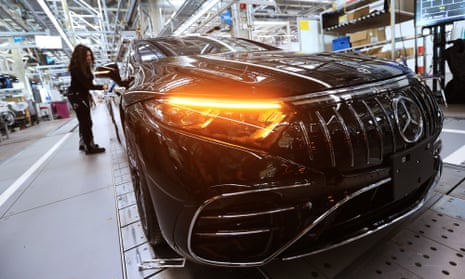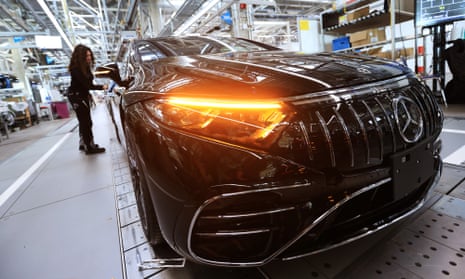EU Eases Emissions Targets, Drawing Criticism
European car manufacturers are being given an extension to meet pollution targets, with the European Commission President, Ursula von der Leyen, announcing a two-year grace period. This decision has been met with criticism from environmental groups who argue the move undermines climate goals.

European manufacturers say the market for zero-emissions cars is not picking up fast enough and the industry needs greater support.
Under the new proposal, companies that exceed emissions limits this year will be allowed to offset their excess pollution by selling more clean vehicles in the following two years. This would extend the compliance window for the 2025 fleet emissions target to 2027.
Von der Leyen stated that the change is intended to give the industry more “breathing space.” However, she emphasized that the overall targets would remain unchanged.
Environmental Groups Criticize the Move
Environmental organizations have condemned the proposal, claiming it rewards automakers that have been slow to invest in meeting the targets and that it will hinder the transition to cleaner vehicles, especially more affordable models.
“Weakening the EU clean car rules rewards laggards and does little for Europe’s car industry – except to leave it further behind China on electric vehicles,” said William Todts, executive director of the campaign group Transport & Environment.
Agustín Reyna, director general of the consumer group BEUC, suggested that the decision would make electric cars less accessible to consumers. He likened the move to “putting the car in reverse while it’s already at full speed on the motorway.”
Context of the Decision
Carbon emissions from new passenger cars decreased by 28% between 2019 and 2023 due to the increasing popularity of electric vehicles (EVs). However, EV sales have declined in 2024, raising concerns about large fines for automakers with high-emission fleets.
The European Automobile Manufacturers’ Association (ACEA), which advocated for more flexible targets, has expressed the view that the market for zero-emissions vehicles is not growing quickly enough. The organization is calling for more support to boost demand, improve charging infrastructure, and reduce production costs.
“The transition to zero-emission mobility and a thriving EU automotive industry must progress together – this is non-negotiable,” said Ola Källenius, the president of ACEA and CEO of Mercedes-Benz.
The announcement, which will be formally proposed later this month, will require approval from both EU governments and the European parliament. It follows the commission’s prior plans to weaken green finance rules, which were established during its previous term.
Shares in several European car manufacturers saw gains following the announcement. Volkswagen shares rose by over 2%, Renault by 1.4%, Mercedes-Benz by 1.6%, and BMW by 1.2%.



